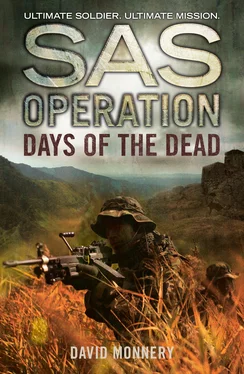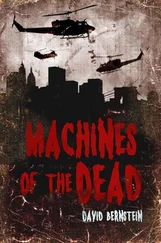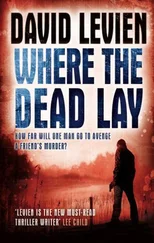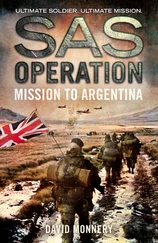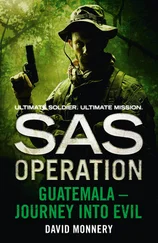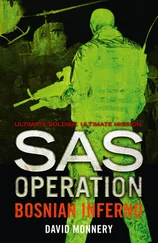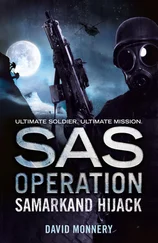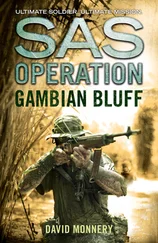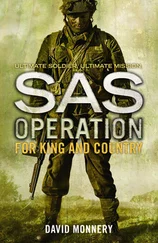‘We’ve got another corner,’ Insley reported.
Dudley took one last look at the lighted windows, and walked across to grab the proffered earpiece.
‘It was a good save,’ Insley explained, as they waited for Anderton to take it.
At that moment they were beeped.
‘Fuck,’ Dudley growled, grabbing the handset.
‘The fax is coming in,’ a voice told him.
There was a pause, and in the background Dudley could hear the groan of the crowd. They were even listening in the communications room!
‘Five names,’ the voice said. ‘They all look Turkish. Beeper numbers and times. Amounts. Christ, there must be about two tons of the stuff in those logs.’
‘Did Six get their source?’ Dudley asked out of curiosity.
‘Yeah. The one they were expecting.’
‘Well, that should cheer the bastards up.’
In the suite occupied by the British Consulate on the fourth floor of the Swissbank building in Panama City the English contingent were gathered round a borrowed portable, willing the half-time whistle to blow. David Shepreth was probably the least involved of the spectators, and it was with no great reluctance that he deserted the TV to take the incoming message from London. It was brief and to the point, containing nothing more than the source number of the fax which had just been received by the London timber-yard office.
He placed it on the desk in front of him and punched out a number on the phone. Somehow he doubted whether the American Embassy would have closed down for Euro 96.
It hadn’t, and a few seconds later he was talking to Neil Sadler, the head of the US Drug Enforcement Agency’s Panama Field Office. He didn’t know Sadler anything like as well as his opposite number in Mexico City, but they had a relationship of sorts and Shepreth was curious to see what reasons the other man would eventually come up with for refusing his request.
‘Hi, David,’ the DEA man said cheerfully enough. ‘And what can we do for the British Empire today?’
‘I need an address to go with a fax number,’ Shepreth told him, then read the number off the paper in front of him.
‘No problem,’ Sadler said. ‘It’ll probably take me a couple of hours. I’ll call you back.’
‘Great, thanks,’ Shepreth said, and hung up, thinking that anyone who believed the Americans no longer ran Panama was living in a dream. Their only real challenger had been Manuel Noriega – ‘Old Pineapple Face’ as the media had less than affectionately dubbed him – and the General had been rather too assiduous in promoting his country’s number-one industry – the import and export of drugs. Involvement in itself might not have condemned him, but he had compounded his crime by giving Uncle Sam the proverbial finger, and for that he was now languishing in a Florida jail.
He was not exactly missed by his fellow-Panamanians. Like everyone else, the Americans occasionally did the right thing for all the wrong reasons.
Shepreth stood by the window for a few moments, staring out at the square of blue Pacific which filled the space between the two high-rise buildings on the other side of the Via España. As usual a breeze was ruffling the palms which lined the wide avenue; Panama City was not the steamy hell of legend, though in just about every other respect it qualified as a major-league modern dump. The city’s business was business, and if Orson Welles had ever done a Central American version of The Third Man he could easily have substituted Panama for Switzerland in Harry Lime’s famous speech about what makes civilization tick.
The second half had started in the room next door, and Shepreth walked through to join the others. England were not playing half as well as they had against the Dutch, and another Spanish near-miss had the Embassy officials chewing their lips in agitation. Even the two secretaries – both local girls – seemed caught up in the anxiety of the moment. Both of them had lovely legs, Shepreth thought, and wondered why he hadn’t noticed before.
He supposed he didn’t come to Panama that often, or at least not lately. Large quantities of cocaine and heroin still passed through the country, but the focus of the drug trade had moved north in the past couple of years, and nowadays Shepreth spent most of his time in Mexico City.
His real employer was MI6, that arm of British Intelligence which dealt with external threats to the security of the United Kingdom. Up until the end of the Cold War its principal occupation had been counter-espionage, but now that spies had either gone the way of the dodo or signed up with one of the corporations for non-political duties, MI6 had been forced into grabbing a share of the war against the unofficial corporations of international crime. These included the Sicilian, Russian, West African and Turkish Mafias, the Chinese Triads, Japanese Yakuza and Colombian drug cartels. With the exception of the Triads, most of these organizations had few soldiers on the ground in the UK itself, and sticking spokes in their collective wheels could only be done on foreign soil.
The other EC intelligence services had a presence in Central America and the Caribbean, but for obvious reasons the principal sharers of Shepreth’s patch were the various overlapping American agencies – the US Customs Service, Coast Guard, Drug Enforcement Agency, Justice Department, FBI and CIA. Originally Shepreth’s relations with these American agencies had seemed better than those they had with each other, but over the past couple of years this situation had deteriorated somewhat. The Americans’ decision to adopt a ‘kingpin strategy’, whereby all their resources were committed to bringing down a selected few of the biggest drug barons, took little or no account of British and European interests. And when this most-wanted list was finally shared with America’s allies it was found to omit the one man the British most wanted included.
It would of course be difficult to put Angel Bazua in prison – he was already in one. It had been specially constructed for him and his ‘business associates’ on the Colombian island of Providencia, and was said to contain all the comforts of home and a few others besides. Everything that Bazua needed to continue running his billion-dollar business had been thoughtfully provided by the Colombian authorities, from mobile phones and computers to an impressive boardroom table. It was even rumoured that a commodious shelter had been dug beneath the jail, as protection against a bombing raid by competitors.
Elements of the Colombian military and civil administrations were obviously armpit-deep in the necessary corruption, but Bazua himself was not a Colombian – he was an Argentinian. And herein lay the other compelling reason for MI6’s interest in him. Bazua had been one of the leading protagonists of the Argentinian Army’s ‘Dirty War’ against its own people, and one of the prime movers behind the attempted liberation of the Malvinas. His son had been killed at Goose Green, further deepening his lifelong hatred of the English, and after the military’s reluctant abdication of power he had gone into exile rather than face a potential investigation into his activities during the Dirty War.
By this time the fortune he had accumulated – most of it stolen in one way or another from his hundreds of victims – was considerable, and with the help of old Colombian contacts from his years at the US-sponsored anti-subversion school in Panama, he had bought himself a slice of the Cali drug cartel’s international action. In the late 80s, as the star of the Medellín cartel had fallen, his had risen with that of his Cali partners, and even the inconvenience of a prison term had done nothing to slow his enrichment. Most of the returning dollars went into Colombian banks to earn legitimate interest, but Bazua had not forgotten his own country or his hatred, and it was his deepest wish that the two new boats riding at anchor off his Providencia prison would soon be ferrying another invasion force to the Malvinas. Once such a force was ashore the liberal government in Buenos Aires would have no choice but to support the invasion, particularly since it would soon become apparent that this time the British were incapable of transporting a force large enough to dislodge it.
Читать дальше
